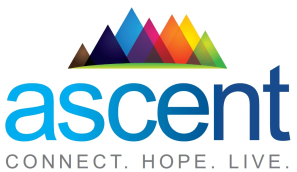There’s been a lot of talk lately about the relationship between human connection and addiction. It may have been sparked by a popular TED talk by British Journalist Johann Hari where he concludes that addiction is not a substance disorder but a social disorder.
People who become addicts tend to lack deep social connections and have trouble relating to others. Substances of abuse become enticing friends, but they soon will become your worst enemy. At first, substance abuse feels good to the user. After some time, addiction only compounds social problems, depression, and loneliness.
Addiction is Lonely
As addiction takes hold of “social” drinkers and drug users, they begin to isolate themselves. A friend who was once the life of the party may start hiding his alcohol or drug consumption. To do this, he must spend more time alone. Once addiction takes hold, nothing is more important than the next fix. That’s when an addict begins lying, manipulating, and stealing from friends and family. They cannot help their behavior, but it drives a wedge between them and their loved ones and further isolates people who likely had social problems to start.
It’s important to remember who these people were before their addiction took hold. That person is still there. They may just need some help getting back.
The Importance of Friendships in Recovery
In recovery, loneliness is a common yet dangerous problem. This is why it’s crucial for anyone in recovery to build a strong network of clean and sober friends to rely on for support.
Instead of relying on one good friend, it’s beneficial to have a group of good friends who can collectively provide the following support:
- A fresh perspective – During recovery, there are many changes taking place in a person’s brain. This isn’t the ideal time to make important decisions, especially on your own. With a team of friends you can trust, you can get the support and advice you need to get you through this time.
- Emotional support – Emotional support is important in every stage of life, but it’s essential to recovery. You may have some friends who cannot offer support in any other way, and that’s ok, as long as they are good at making you feel loved.
- Physical assistance – If you ever need a ride to work or a meeting, you should have someone you can call. One missed day of work or one missed meeting can send a recovering addict on a downward spiral.
The friends you connect with in early recovery may not be the friends you’ve had for life. Many people find that it’s more beneficial to connect with a fellow recovering addict than someone who has never been through it before. And if your current friends are still using, it’s time to start distancing yourself from that group. Rely on your newfound sober community to lift you up and help you through this difficult time.
Community Drug and Alcohol Addiction Programs
If there’s one thing recovering addicts need, it’s support. Community programs are designed to help people in recovery in the following ways:
- Raise awareness – As a society, we’ve come a long way towards breaking down the stigmas of addiction. But we still have a long way to go. Community groups throughout the nation are raising awareness about addiction through various channels, such as fundraisers, conferences, and rallies. If you want to get involved in raising awareness within your community, the local college is a good place to start. They typically have groups in place to address drug and alcohol addiction, and here you can reach people at a critical time in their journey. You may also get involved with a national organization like Shatterproof to raise awareness for the growing problem of addiction.
- Spread hope – It’s not uncommon for someone struggling with addiction to feel hopeless. Organizations like To Write Love On Her Arms (TWLOHA) focus on spreading a message of hope to those in greatest need through events and outreach programs. TWLOHA helps people struggling with addiction, depression and suicidal thoughts. Faces and Voices of Recovery is another organization that spreads hope. This organization spreads hope through real life stories of people who have recovered from alcohol or drug abuse and went on to achieve great success.
- Teaching life skills – When someone has suffered from addiction for many years, it’s all they know. In order to fully rehabilitate, they must learn to re-enter society with sobriety. Organizations like Gearing Up help teach people in recovery skills they can use in the real world. Gearing Up teaches women lessons in biking and bike repair, so they may find a new and healthy passion to replace their previous bad habits. Online companies like BetterHelp also offer access to psychiatrists for anyone looking for mental health help. You can learn more here.
- Legal assistance – Just as there is a stigma in society, there’s also a stigma about recovering addicts in the workplace. Organizations like Legal Action Center stand on the side of those who are recovering and fight against employers who may discriminate based on a person’s past addiction.
There’s no question that addiction is a lonely disease. In order to be effective, recovery must be the opposite. When you’re building your network, be sure to connect with people and community organizations that are aligned with your sobriety goals.
Guest post by Trevor McDonald
